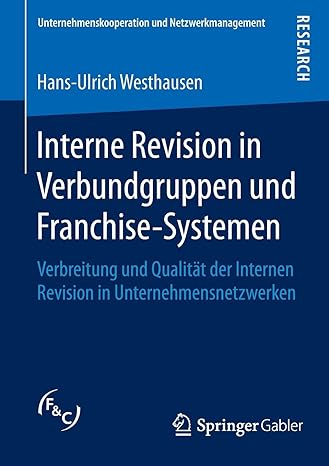Question
MBA 6100 Case study Case #1 Sales $2,158,400 Cost of sales (all variable) $1,246,050 Gross Margin $912,350 Operating expenses: Variable $222,380 Fixed $170,940 Total operating
MBA 6100 Case study Case #1
Sales $2,158,400
Cost of sales (all variable) $1,246,050
Gross Margin $912,350
Operating expenses:
Variable $222,380
Fixed $170,940
Total operating expenses: $393,320
Administative expenses (all fixed) $451,500
Net operating income $67,530
The above income statement presents the sales, expenses and pre-tax operating income for a local
eating facility. At this facility, the average meal cost for lunches and dinners are $20 and $40
respectively. This restaurant serves both lunch and dinner 300 days per year, and serves twice as many
lunches as dinners.
As the MBA intern working on assignment you are to prepare a managerial accounting focused report to
the owners of the restaurant, to include the following:
1. Prepare a contribution margin income statement using the given financial data.
Use the following format:
Sales
Variable costs
Cost of sales
Operating
Total variable costs
Contribution margin
Fixed costs
Operating
Administrative
Total fixed costs
Net operating income
2. Compute the break-even volume of the number of lunches and dinners. Assume that the CM%
for each meal category is the same as the average CM% as calculated in #1.
Hint: To solve a break even sales mix, use the horizontal formula:
Net operating income = ($Sales $Variable costs) $fixed costs
Net operating income = $CM $fixed costs
At Breakeven, NOI = $0
Therefore, $CM = $ Fixed costs
Sales $2,158,400
Cost of sales (all variable) $1,246,050
Gross Margin $912,350
Operating expenses:
Variable $222,380
Fixed $170,940
Total operating expenses: $393,320
Administative expenses (all fixed) $451,500
Net operating income $67,530
Sales
Variable costs
Cost of sales
Operating
Total variable costs
Contribution margin
Fixed costs
Operating
Administrative
Total fixed costs
Net operating income
Now solve for the unit $CM for each item. Let X be the number of dinners, 2X the
number of lunches. $CM is the combined total of the $CM for dinners, and the $CM for
lunches.
3. Using the CM income statement format, verify that your calculated break-even volume for
lunches and dinners results in a NOI of zero (hint: in your prepared CM statement from #1,
breakout the Sales dollars into subcategories lunch and dinner as shown below, using the values
of X for in the # of meals cells). Present the entire CM statement at the BE level.
Sales: per meal # of meals $ Total
Dinner
Lunch
Total sales:
4. The owner of the restaurant is thinking of increasing sales through additional advertising, which
she will incur as an administrative expense. The proposed additional advertising campaign will
cost $25,000. She anticipates that the additional advertising expense will result in an additional
6 lunches and 3 dinners on average, per day. Illustrate the impact on NOI assuming the changes
above (hint: show a revised CM statement).
Hint: for this type of what-if, compare the additional contribution margin impact on NOI given
the change in units and change in fixed costs.
5. In order to increase NOI, the owner of the restaurant is considering adjustments to the quality
of food ingredients currently used. Rather than using premium ingredients, use of average
quality ingredients would reduce the cost of food by 15%. The owner proposes to not change
the current meal pricing.
Step by Step Solution
There are 3 Steps involved in it
Step: 1

Get Instant Access to Expert-Tailored Solutions
See step-by-step solutions with expert insights and AI powered tools for academic success
Step: 2

Step: 3

Ace Your Homework with AI
Get the answers you need in no time with our AI-driven, step-by-step assistance
Get Started


